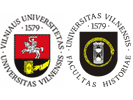After Bolsheviks had been banished out of Lithuania and the life in the country had normalized, in Lithuania occupied by the Nazis, owing to the initiative of the local Lithuanian authorities, the agricultural production and culture development which had been started during the period of independence of Lithuania and then neglected during the period of Bolshevism was resumed, including the improvement of breeds of domestic fowl and cattle, the draining and cultivating of soil, the organization of land exploitation, the classifying of land, the agricultural research and education, etc. The German civil authorities regarded Lithuania as a country to be annexed in the nearest future and, therefore, they did not hamper and even stimulated the initiative of officers of the Lithuanian authorities taken in the above mentioned fields. Nevertheless, the main goals of the Nazi regime in the sphere of agriculture in Lithuania were to exploit and plunder the country's farmers in order to improve the provision of the German army and its population with foodstuffs. The Nazis issued a lot of orders implying various obligatory deliveries of agricultural produce levied on the Lithuanian farmers.
The quota of obligatory deliveries, constituted the important part of gross agricultural output of Lithuania. In spite of various repressive measures, the set deliveries quota was not executed in full during any economic year. However, only in the form of obligatory deliveries (excluding requisitions, the army, etc.) the invaders succeeded in taking great quantities of various food products from the Lithuania farmers. It goes without saying, that such policy of the invaders ruined the agriculture of Lithuania and did not contribute to development of production. Moreover, during the period of German occupation the agriculture in Lithuania faced the following problems: the lack of agricultural machinery and equipment, seeds, fertilizers, drafters, agricultural workers, as well as the low prices on agricultural produce, etc. In such unfavourable war time conditions, the area under crops decreased, the land lay fallow, the cultivation and fertility of soil was poor, the field crops production fell down, the number of domestic fowl and cattle decreased. At the end of the war, the agriculture in Lithuania was even more exhausted by the actions of war.
|


 dizainas ir programavimas giriaus
dizainas ir programavimas giriaus  dizainas ir programavimas giriaus
dizainas ir programavimas giriaus